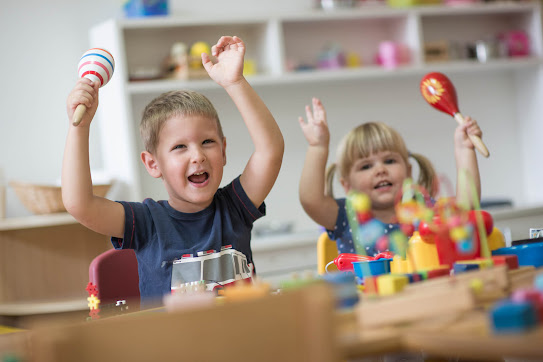Your Montessori daycare approaches discipline differently than traditional public schools. Instead of focusing on problem behavior, Montessori uses redirection and discussion to address the behavior of children. The idea is to address behavior before it becomes disruptive, and that is done through positive behavior strategies like these.
Appropriate Examples
The teachers and parents of children are their primary role models during the daycare and preschool years. As such, it is the responsibility of these people to provide positive examples of desirable behavior. From taking responsibility for accidents and mistakes to learning social skills such as courtesy and grace, children learn from what they see in others. Our role as adults in their lives is to give them the best examples we are able to provide. Be what you want to see, and acknowledge good behavior when it happens.
Consistency
When the desired behavior has been laid out for children to follow, it needs to be consistent. This is especially important when coordinating school activities with the home or community. Maintaining or addressing consistency between the home and the classroom is one of the many reasons that Montessori uses frequent parent-teacher communication. With everyone on the same page, children quickly adapt to behaving in an appropriate manner.
The Prepared Environment
The Montessori prepared environment is not a random collection of toys and activities. It is carefully laid out to engage children in their educational activities in a manner that benefits from good social behavior. Children hone grace and courtesy skills regularly because social etiquette is one of the cornerstones of the Montessori environment, and they are frequently given reasons to use it.
Montessori daycares are known for their quiet, organized activities. That reputation is a direct result of using proactive, positive behavior strategies to minimize disruptions and maximize the focus and concentration of the children. Good behavior is not addressed as an individual issue so much as it is learning an effective method of interacting with others that will yield the desired results.

